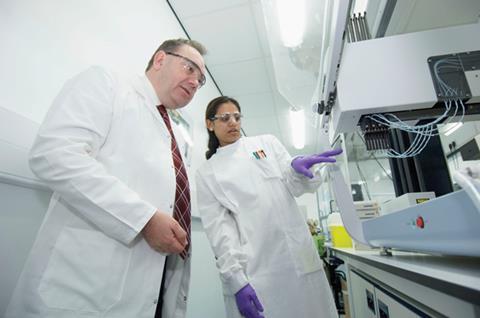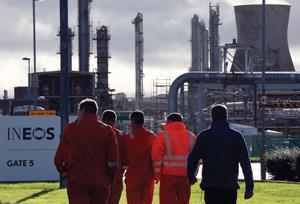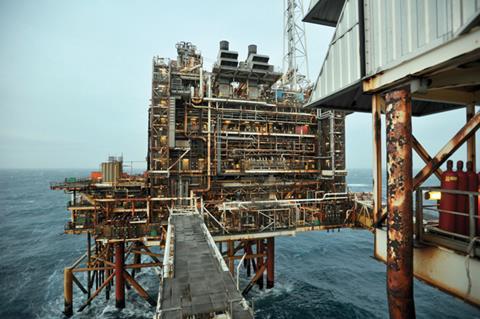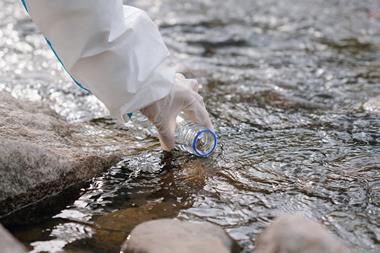Angeli Mehta asks what a yes vote in Scotland’s independence referendum would mean for chemistry
What would a yes vote in Scotland’s independence referendum mean for chemistry? With just a few weeks to go, that’s the question Angeli Mehta put to academics and industrialists

The importance of the chemical industry to Scotland can’t be overstated. It earned £4.5 billion in exports in 2012 – second only to food and drink – and accounts for 15% of the UK’s chemical sector and 40% of all industrial R&D in Scotland. Four Scottish university chemistry departments rank in the UK’s top 10 for research, including St Andrew’s, which uniquely hosts Sasol Technology, part of the R&D arm of South Africa’s energy and chemicals group, Sasol.
The sector ‘punches above its weight both at UK and global level’ according to Sandy Dobbie, chair of Chemical Sciences Scotland, an industrial, government and academic partnership: ‘It is one of the most globalised industries – very few people think at a local level.’ But what happens at the local level in the 18 September referendum on Scotland’s independence from the rest of the UK could make all the difference.
For the oil and gas industry, it’s a question of fiscal stability; for chemicals businesses, it’s the cost of energy; and for universities, it’s the thorny issue of research funding.
UK funding
Scotland is currently part of a single UK research area, funded through seven shared publicly funded research councils (known collectively as RCUK), and subject to common peer review. It’s a unique relationship. Scottish universities win disproportionately more research council grants (13.1% in 2012–13, compared to Scotland’s 8.4% of the UK population) – than would be expected per capita. The Scottish government estimates UK tax revenues raised in Scotland contribute about 9% to research council spending. Charities also invest; for example, researchers in Scotland have won more than £600 million from the Wellcome Trust alone over the past decade.

Money is one thing, the UK’s good system of governance is another: ‘That’s what gives us our international reputation. We’re right at the top of the pile – and it’s not by accident, it’s because we have a very robust system,’ says Mike Ferguson, dean of research for the college of life sciences at Dundee University.
In the event of independence, David Willetts, UK minister for universities and science until the July reshuffle has said Scotland ‘would not be part of that structure’. The Scottish government’s cabinet secretary for education and lifelong learning, Mike Russell, insists that maintaining a common research area is in the best interests of both Scotland and the rest of the UK. Given these different views, the Royal Society of Edinburgh (RSE) concludes that ‘it’s simply not possible at this time to be certain that agreement could be reached’ and that ‘the prior negotiations would not be simple’. However, it said it welcomed the Scottish government’s commitments to guarantee ‘no adverse funding impact’ in a transition to independence.
‘It’s hard to see how we would get better than per capita funding unless the Scottish government agreed to put in funds to reflect historic levels,’ says Richard Cogdell, director of the University of Glasgow’s Institute for Molecular, Cell and Systems Biology. But what of the excellence of Scotland’s researchers? ‘That’s fine if you are in an enclosed system. But if you’re outside it, the argument of excellence goes out of the window – you’d be funding Scotland plc and not rest-of-the-UK plc.’
‘There is going to be a period of great uncertainty while the details are sorted out – the damage could be done just in the hiatus,’ says Ferguson. In the past two years, he has recruited 14 new principal investigators from all over the world. ‘In every case they have been interested and concerned about the possible effects of a referendum.’
Ferguson helped found Dundee’s Drug Discovery Unit, which attracts major funding from the Wellcome Trust. In its evidence to the Business Innovation and Skills (BIS) select committee, Wellcome said there is ‘no guarantee that our funding [for research in Scotland] will be maintained at current levels’. A possible model for the way forward is its current 50:50 funding arrangement for researchers in Ireland. But even if researchers in an independent Scotland are eligible for funding, issues of regulation and governance can restrict international partnerships. Wellcome points out that differences in Scottish and English legislation already cause some problems for multi-site clinical studies. However, Wellcome’s head of policy, Nicola Perrin, says: ‘Given the excellence of the research north of the border, it is unlikely that we would withdraw funding entirely.’
Wider funding
In addition to research grants, the research councils fund major infrastructure projects, including the Argon Isotope Facility and the Cosmogenic Isotope Analysis facility at the Scottish Universities Environmental Research Centre (SUERC) in East Kilbride. A third of SUERC’s income comes from the Natural Environment Research Council. ‘In many cases, we are the UK vehicle for scientists to get access to technologies and data, which is critical in looking at responses to climate change,’ says Rob Ellam, SUERC’s director. He worries that 40 years of history could be vulnerable. ‘The radiocarbon dating lab serves two very different communities. The remit is to be very complementary [to the NERC facility in Oxford] – it’s not to serve Scottish researchers. I’d like it to continue but it would be a pretty unique relationship in the area of science in which I work.’ Some of the facilities, he says, are not on the scale that would be likely to make them international collaborations.
‘The people who are saying we can go out and look for international funding aren’t in science. If you do cutting-edge science, the sums are orders of magnitude bigger,’ says Cogdell. ‘RCUK is the mainstay of funding – it’s the core that allows the system to work. For me, the biggest problem is uncertainty and the consequences for attracting and retaining good people.’
There are those who argue Scotland needs its own research funding policy, no matter what happens in September. ‘The funding that’s made available is not tested against any criterion of national benefit, and the taxpayer is providing an investment with no output against which it can be judged,’ says Ferdinand von Prondzynski, law professor and principal of Robert Gordon University, which is located in the UK’s oil and gas capital, Aberdeen. He stresses that blue-sky research is needed ‘But you need to do a lot of it – a smaller country has to be more targeted.’ The implication being that an independent Scotland would have to become more specialised.

Scottish researchers may have to look farther afield. Ellam views the EU’s Horizon 2020 programme as a ‘game changer’. ‘Because we’ve had a good national funding system, we haven’t maximised on what we can get out of Europe.’ This has become more important as RCUK funding for overheads has diminished. But he points out that there is now the question of whether Scotland will be able to join the EU and if so, how soon. Researchers look anxiously at the example of Switzerland. Although not an EU member, it enjoyed a status which gave access to EU research funds, but which was lost overnight, after the country voted to curb immigration. It’s difficult, says Ellam, when ‘we’re not being told enough about what a yes vote could imply, but assuming – perhaps wrongly – that a no vote maintains the status quo’.
Europe poses another dilemma. The Scottish government wants students from the rest of the UK to continue to pay fees (which currently amount to about £150 million), while no other EU student will be expected to pay for their tuition (including Scottish students). Willetts told the Scottish Affairs committee ‘You cannot put up a new barrier aimed specifically at keeping out students from Manchester at the same time as saying that your aim is to be a single integrated research area with Manchester.’ Russell told RSE fellows that the Scottish economy would otherwise be undermined, as most of the 14,500 students from the rest of the UK don’t stay after their degree. The Scottish government fears free tuition could see student numbers from the rest of the UK rise to 80–90,000.
Industrial investment
When Aberdeen and Grampian Chambers of Commerce asked its members whether the referendum was having an impact on planning and investment proposals, 45% said it was. But 38% of respondents felt independence would make no difference to the oil and gas sector. Both BP and Shell have urged Scotland to remain within the union, while other companies including GSK and BASF have said they take no view. GSK points out that it has invested over £100 million in its plants at Irvine and Montrose since 2012 in the run up to the referendum.
Industry tends to make investment where academic research is
Ferdinand von Prondzynski
Members of the Chemical Industry Association (CIA) want to see a 50% growth (to £56 billion) in the contribution of the chemical-using industries to the Scottish economy by 2030. To achieve this, it needs to attract jobs and investment. Scottish universities produce around 1000 graduates a year in chemistry or a related subject. But that isn’t reflected in the industry’s willingness to create R&D jobs in Scotland – something that’s viewed as strategically important if the chemicals sector is to grow. ‘Industry tends to make investment where academic research is related to what they’re doing,’ says von Prondzynski. He argues that R&D jobs are necessary to anchor companies beyond the point at which plant investment has been written off. ‘It is not impossible to deal with the issues in a more devolved setting, though it would have to involve devolving all of the research funding issues from BIS. However, the proper elaboration of a high-value economic development strategy is more easily achieved in an independent setting,’ he argues.
Robert Tooze is managing director of Sasol Technology, which has created R&D jobs in Scotland. He says independence would make no difference to its operations. His labs benefit from the research pooling initiatives of Scottish universities, ‘something Scotland is able to do because of its size – no one is more than a phone call or two away’.
Dobbie is one of those charged with helping the sector realise its ambitions, and says the aim is to do more applied science. ‘Attract in the US and Japanese firms through research, then get the marketing and manufacturing jobs on the back of that.’
Energy is money

‘What makes or breaks the long term vision is the energy price,’ says CIA chief executive, Steve Elliott. ‘US shale gas has changed the game significantly,’ says Dobbie. ‘With much lower feedstock costs, the US chemicals industry can compete with Europe.’ Add to that the potential competition from Middle Eastern chemical producers, who up till now have targeted China, and it becomes very clear why both the UK and Scottish governments were so keen to avert the catastrophe of closing Ineos’ Grangemouth refinery complex last year (see Ineos reprieves Grangemouth petrochemicals). Ineos expects to begin importing US shale gas to Grangemouth in 2016, which will mean lower feedstock prices for the chemicals industry. ‘You would hope that shale gas will start to pull in other businesses at Grangemouth: if you can get energy costs right, feedstock prices become competitive,’ argues Elliott.
Both Dobbie and Elliott agree the next step is for the UK to be producing its own shale gas. ‘This is currently being evaluated by experts for both UK and Scottish governments. It comes down to a question of interpretation of the findings – were there to be a difference, that would be serious,’ says Dobbie. Scotland is seeking to participate in a UK-wide market for energy, but ‘how will that be delivered given Scottish government commitments on renewables and nuclear?’ Elliott asks. The CIA says any uncertainty regarding energy price and supply could hinder investment in the chemicals and pharmaceutical sector.
Ineos’ £300 million investment in Grangemouth comes as North Sea production and exploration continues to decline, albeit with a small increase predicted over the next few years thanks to major investment last year. But oil and gas is still the biggest single component of Scotland’s chemical sector – contributing £19.4 billion to the economy.

Both Scottish and UK governments have committed to implementing the vision of how to increase oil and gas production, set out in a government review led by Ian Wood (former chairman of an oil services company) and published in February 2014 – but they ‘may approach it differently in terms of how they legislate’, says Lindsay Wexelstein, oil and gas analyst at consultants Wood Mackenzie. The defined parameters of what a regulator can do will be important. In June, the UK Treasury announced that the new regulator will be the Oil and Gas Authority – to be based in Aberdeen – and that it will work with it to review tax rates and allowances. Upstream operators want to see stability, but Wexelstein points out there have been three significant tax rises since 2002.
Predictions of future tax take from the North Sea vary widely. There are a lot of unknowns: production output has underperformed because of maintenance issues and poor production efficiency, says Wexelstein. ‘Whether this can be rectified will be a big driver for future production levels.’ Operating costs per barrel have greatly increased, especially as facilities get older and exploration becomes even more technically challenging. To put it in perspective, 42 billion barrels of oil equivalent (boe) have already been produced and Wood Mackenzie estimates another 16 billion boe are yet to be produced. It also expects companies to invest $18 billion (£10.5 billion) in decommissioning over the next ten years. The UK government has already signed deeds for future tax relief, which would transfer to a Scottish government if there’s a vote for independence. Which government will ultimately fund the relief will be up for negotiation, says Wexelstein.
Just as charities are concerned about any divergence of regulatory paths for research, industry is watching to see what will happen with environmental protection and health and safety. At the moment the Health and Safety Executive (HSE) operates UK-wide: what would a break-up of the HSE mean, asks Elliott, and what regime would be established in an independent Scotland? And Scotland has its own environmental protection agency, the SEPA. ‘The SEPA is relatively new, and the fact that it is new and dealing with a more limited geography and customer base are key. It is very pragmatic. I think it’s worked well,’ says Elliott. Dobbie wonders how much difference there would be in regulation, post-referendum. ‘It really emanates from the EU: the standards are the same across Europe, although local interpretation differs. So you could argue both ways as to whether independence would make a difference.’
And the arguments will continue both ways until 18 September, and perhaps beyond. What’s clear is that academics and industrialists alike still seek answers to the pressing questions that will affect the future of this vital sector. And if Scotland does vote yes, they might have to wait for those answers until negotiations between Scottish and UK governments, as well as the EU, are complete.
Angeli Mehta is a science writer based in Edinburgh, UK












No comments yet